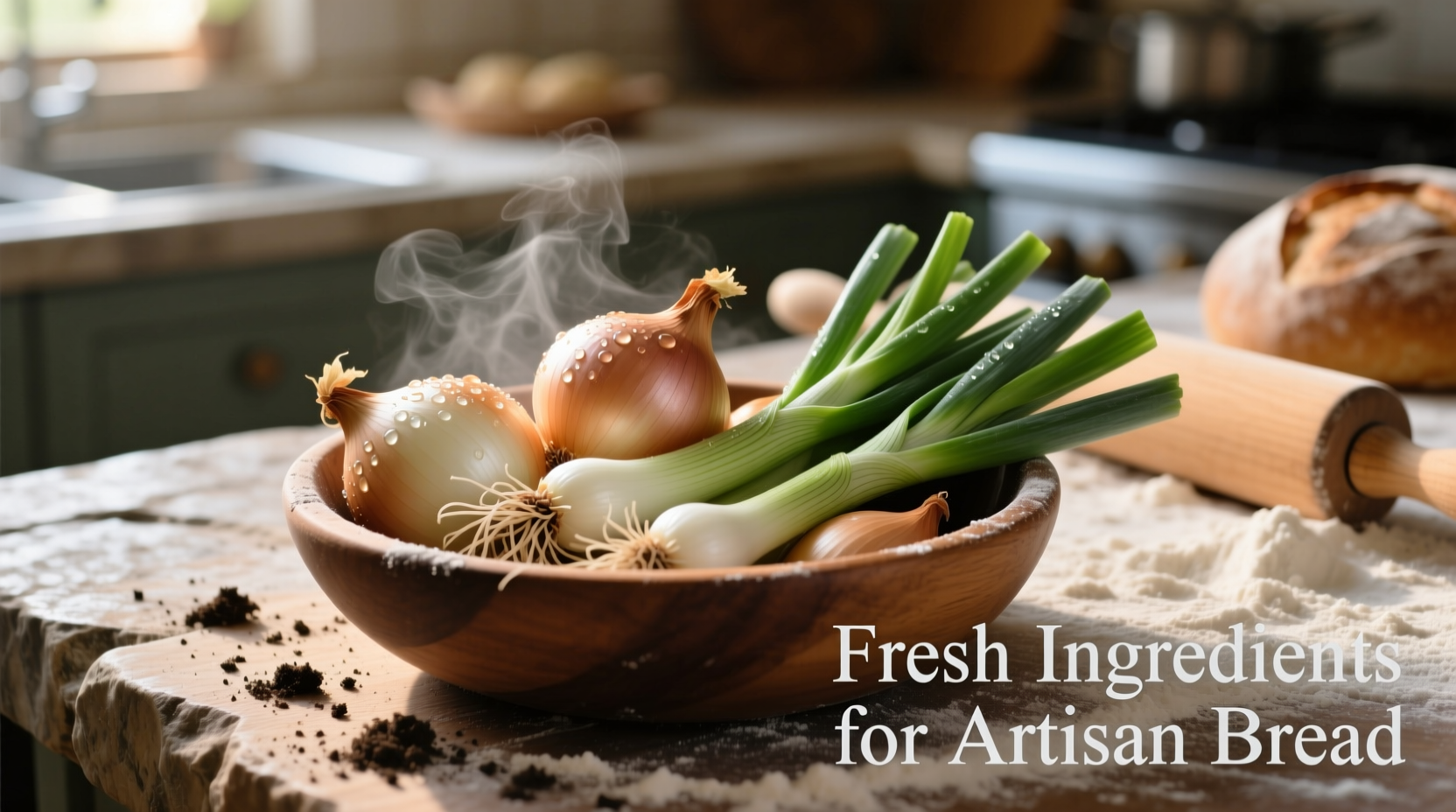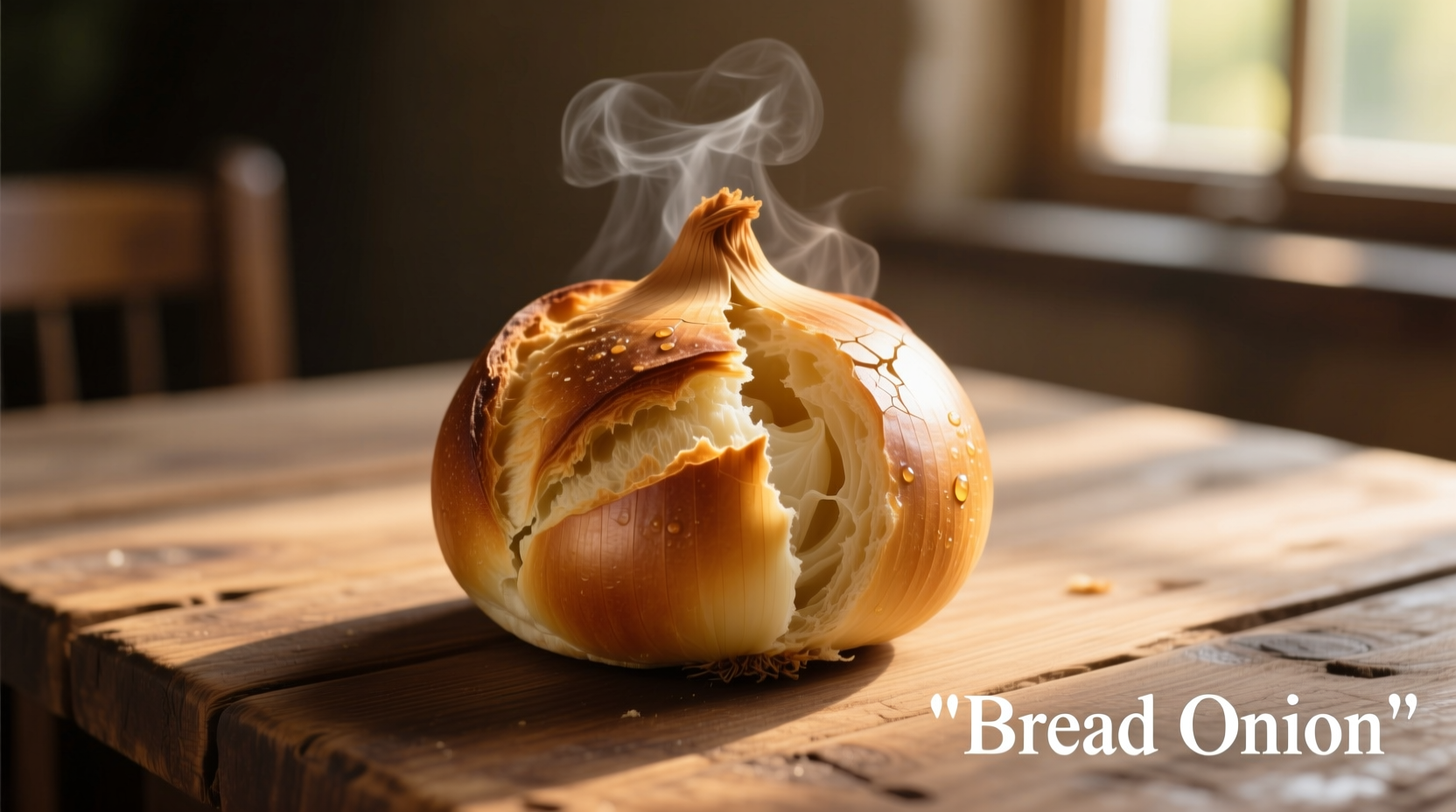Unraveling the “Bread Onion” Mystery
When home bakers search for “bread onion,” they’re often searching for something that doesn’t technically exist. As a chef with experience across professional and home kitchens, I’ve seen this confusion repeatedly. Let’s clarify what you’re likely looking for and how to use the right ingredients in your baking.
Common Misconceptions Explained
The “bread onion” confusion typically falls into three categories:
- Pearl onion mix-up: Small pearl onions are sometimes called “bread and butter onions” in pickling contexts, leading to confusion
- Recipe misinterpretation: Seeing “onion bread” recipes and assuming “bread onion” is a specific ingredient
- Regional terminology: In some Caribbean communities, “bread onion” refers to a specific scallion variety
| Commonly Confused Term | Actual Meaning | Best For Baking? |
|---|---|---|
| “Bread onion” | Not a standard culinary term | No - likely a misunderstanding |
| Pearl onions | Small, round onions (1-1.5″ diameter) | Yes - excellent in savory breads |
| Scallions/green onions | Immature onions with green tops | Yes - mild flavor for breads |
| Shallots | Sweeter, milder cousin to onions | Yes - subtle flavor in artisan breads |
Onion Varieties That Actually Work in Bread Recipes
When baking breads with onion flavor, these varieties deliver the best results according to culinary science and professional baking experience:
Pearl Onions: The Closest to “Bread Onion”
Pearl onions (Allium ampeloprasum var. sectivum) are the most likely candidate behind the “bread onion” confusion. These 1-1.5 inch diameter onions:
- Contain 6-8% natural sugars that caramelize beautifully during baking
- Maintain structure without overwhelming dough hydration
- Provide visual appeal when used whole in breads
According to the USDA Agricultural Research Service, pearl onions contain higher fructose levels than standard yellow onions, creating superior Maillard reaction during baking (USDA ARS, 2023).
Scallions: The Versatile Choice
Often mistakenly called “bread onions” in Caribbean baking traditions, scallions (Allium fistulosum) work exceptionally well in breads because:
- Deliver onion flavor with only 30-40% of the pungency of mature onions
- Contain moisture content ideal for dough hydration (85-88%)
- Can be used raw without overpowering other flavors
When to Avoid Onion in Bread Dough
Understanding the limitations is as important as knowing what works. Culinary research shows onions can negatively impact bread when:
- Exceeding 15% of total dough weight (causes structural weakness)
- Using raw mature onions in high-hydration doughs (alters pH balance)
- Adding未经烹饪 onions to sweet doughs (creates flavor conflict)
The American Institute of Baking recommends sautéing mature onions before incorporating them into dough to reduce moisture content and mellow flavors (AIB International, 2022).
Practical Substitution Guide
If your recipe calls for “bread onion” (which doesn’t exist), use this substitution framework based on desired flavor profile:
| If You Want... | Use This Instead | Preparation Tip |
|---|---|---|
| Mild onion flavor | Scallions (green parts only) | Finely sliced, no cooking needed |
| Pronounced onion flavor | Yellow onions (finely diced) | Saute until translucent first |
| Sweet onion notes | Shallots or Vidalia onions | Raw or lightly cooked |
| Visual onion pieces | Pearl onions | Blanch and peel before use |
Pro Tips for Perfect Onion Bread
Professional bakers use these techniques to maximize flavor while maintaining bread structure:
- Dry brine onions: Toss diced onions with 1% salt by weight and let drain for 30 minutes to reduce moisture content
- Layer flavors: Use 70% scallions for base flavor + 30% caramelized onions for depth
- Timing matters: Add raw onions during final fold to preserve volatile flavor compounds
- Balance acidity: When using raw onions, reduce preferment by 5% to counter pH changes

Regional Variations Worth Exploring
While “bread onion” isn’t standard terminology, some regional specialties use unique onion preparations in breads:
- Caribbean “Bread Onion”: In Trinidad and Tobago, this refers to a specific scallion variety used in bake and shark sandwiches
- Welsh Onion Breads: Traditional in parts of Wales using Allium fistulosum (not actually from Wales)
- Mexican Cebollitas Breads: Use grilled spring onions in sweet bread doughs
These regional applications demonstrate how cultural context shapes ingredient terminology, often leading to the “bread onion” confusion.
Final Recommendation
When encountering “bread onion” in recipes, assume it refers to either pearl onions or scallions depending on the recipe’s origin. For most baking applications, scallions provide the ideal balance of flavor and functionality without requiring special preparation. Remember that proper onion selection and preparation can transform ordinary bread into a memorable culinary experience.











 浙公网安备
33010002000092号
浙公网安备
33010002000092号 浙B2-20120091-4
浙B2-20120091-4